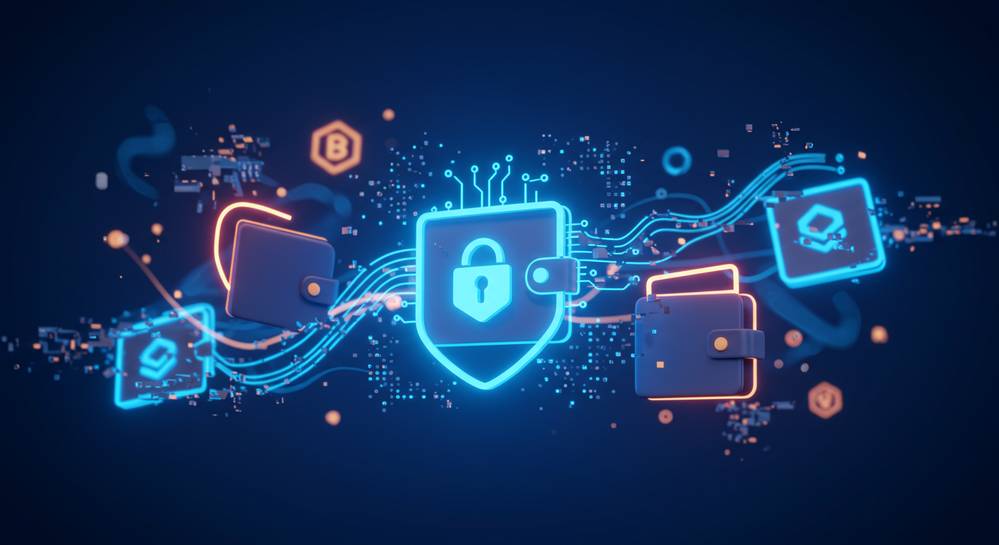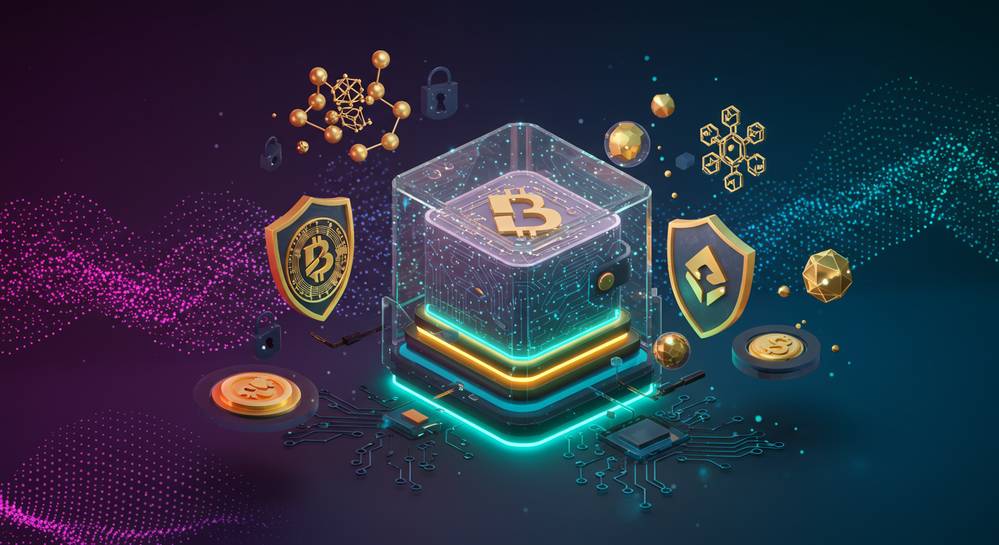How to create a strong password for crypto wallet—it sounds techy, but it’s your front line in the digital currency battleground. You’ve pooled your cash into crypto, with dreams of savvy investments and iron-clad security. But hackers lurk, itching to find a crack in your cryptic armor. They’re no match for you, though. I’m here to arm you with a password that’s a digital fortress—unbreakable, unforgettable, and uncompromising. Ready to learn the ropes of crafting a hacker-proof passcode? Let’s dive deep, outsmarting cyber thieves at every keystroke.
Understanding the Essentials of Crypto Wallet Passwords
The Importance of Password Complexity Requirements
Let’s dive straight into the deep end, shall we? Creating a crypto wallet password isn’t child’s play – it’s the key to your digital treasure chest, after all. So, your first line of defense? A complex password. We’re talking about a jumble of letters, numbers, and symbols that don’t form a word you’d find in a dictionary. Make sure it’s long too. How long, you ask? Aim for at least 12 characters – the more, the merrier.
Now, why bother with all this fuss? Hackers love low-hanging fruit. If your password is something like ‘password123,’ you’re handing them your wallet on a silver platter. So, as you create your crypto wallet password, think of it as creating a secret code. This code should be unique to you and hard for others to guess.
The Role of Entropy in Enhancing Password Strength
Next up on our chat: entropy. In password talk, entropy measures how unpredictable your password is. The higher the entropy, the tougher it is for bad folks to crack it. Why? Because high entropy means more possible password combinations. To jack up your password’s entropy, mix in upper and lower-case letters with numbers and symbols. And don’t just stop there. Be unpredictable. Choose random words and splice them with digits and symbols.
For instance, ‘CoffeeMugW1n$!’ beats ‘ilovecoffee’ every day of the week when it comes to security. Using a password strength checker can show you how strong your creation is. Think of it as a password fitness test. If it passes with flying colors, you’re on the right track. Now, shouldn’t you just write it down? Not so fast. Writing it down can be risky if it falls into the wrong hands.
So, what do you do? Consider using a password manager for cryptocurrency. These nifty tools store your complex password so you don’t have to remember it. And they can create tough passwords for you too. Kind of like a trusted friend who’s good at keeping secrets.
Remember to avoid anything that connects to your personal life. Hackers are sleuths – no Sherlock Holmes needed to guess ‘Fluffy123’ is likely linked to your pet. Ditch any personal information in passwords.
Speaking of variety, your password should be a blend of characters – the more character variety in passwords, the better. And please, let’s leave ‘12345’ to open luggage, not digital wallets. Steer clear from sequences or repeated characters. Passwords like ‘aaaa’ or ‘1234’ are a big no-no.
That’s the scoop on building walls around your digital gold. Strong passwords keep the gate crashers out. Keep each point in mind and your crypto treasure will stay just that – yours. Next, we’ll talk about the tools and tricks that can make your password a digital fortress.
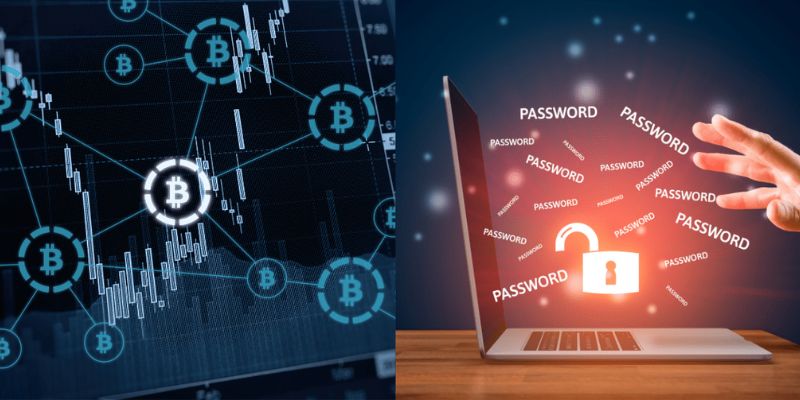
The Art of Crafting a Strong and Memorable Password
Incorporating Character Variety and Avoiding Common Pitfalls
Want to keep your crypto safe? Start with a strong password. You need a mix of letters, numbers, and symbols. Make sure it’s long too. But don’t use stuff like your birthday or “password123”. Hackers love that.
Okay, now I’ll tell you how to do it right. Use upper and lower case letters. Mix in numbers like 5 and 9. Throw in symbols like “!” or “$”. This mix-up is your first line of defense. It’s called password complexity. It stops hackers from guessing your password.
Be smart. Don’t just swap “E” for “3”. That’s too easy to crack. Be random. Use a mix no one else has. Don’t pick words from the dictionary either. Hackers have tools that check every word. That’s a dictionary attack. You don’t want that.
Ever heard of a passphrase? That’s a bunch of random words together. Like “bluefish7&marketstand”. It’s long but easy for you to remember. Not so easy to hack. Nice, right?
Techniques for Strong Passphrase Generation
Let’s make a passphrase. First, pick four random words. Now, add numbers and symbols between them. See? It’s like a secret code. But it’s one you can remember. That’s key.
But wait, there’s more. Add some personal flair. Maybe an inside joke. A favorite song lyric with a twist. Just keep it random. You want hackers to scratch their heads.
Now, check how strong it is. Use a password strength checker. It tells you if you did a good job. Aim high. The stronger, the better. Change it up until it says you’re gold.
Keep your passphrase safe. Write it down if you must. But keep it secret. Hide it well. Or use a password manager. These are apps that keep passwords locked up tight for you. They even make strong passwords for you. How cool is that?
Passwords are like keys to your digital treasure. Protect them. Update them once in a while. Switch things up. It’s like changing your house locks.
Stay sharp about security questions too. They’re backdoors to your account. Don’t use easy answers. Mix it up. Treat them like extra passwords.
And hey, remember to have fun with it. Make a game out of making the best password. Challenge yourself. Stay safe, friends.
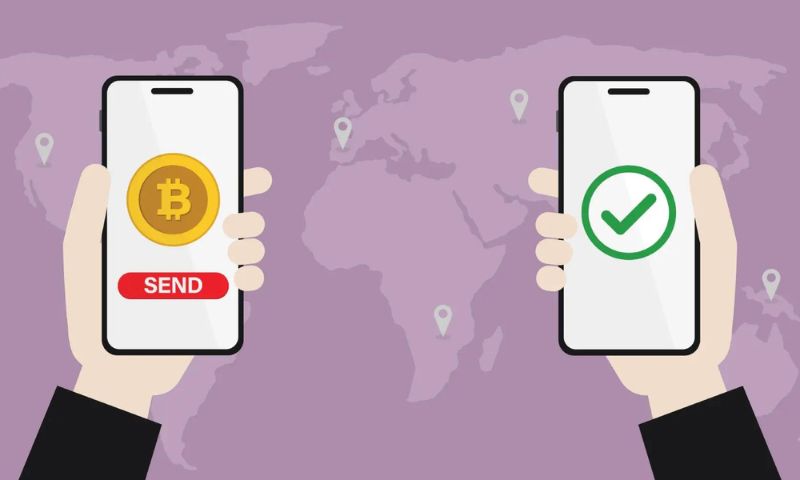
Fortifying Your Password with Additional Security Layers
The Need for Multi-factor Authentication for Wallets
When you create a crypto wallet password, it must be tough. Hackers are smart. Your first line of defense can’t be your last. Let’s bulk up your wallet’s security, and it starts with multi-factor authentication (MFA). “Why use MFA for wallets?” You ask. Simple. It adds another check before someone can get in. Like a second lock on your door.
Think of MFA as a team. Your strong password is the star player. But even stars need help. MFA is a solid teammate, blocking thieves. It can ask for another password, a code from your phone, or even a fingerprint. Now, if someone steals your password, they still can’t get in. They need your phone or your fingerprint too.
How Biometric Authentication Bolsters Crypto Security
Now, let’s dive into biometric authentication for crypto. “How does it make things safer?” Here’s the straightforward answer: biometrics check who you are. It uses unique things about you, like your fingerprint or face. So, only you can unlock your crypto wallet. That’s pretty neat, right?
Biometrics aren’t just cool; they are super secure. Think about it. No two people have the same fingerprint. Your face is yours alone. When you use them with your crypto wallet, it’s like having a personal guard. This guard knows you and only lets you in.
Why’s this good? Well, passwords can be guessed or stolen. But your fingerprint, that’s hard to fake. Even if someone has your password, they can’t mimic your fingerprint easily. So with biometrics, hackers meet a strong roadblock.
It’s like your own superhero power—a power that keeps your wallet safe from villains. Sure, no security is perfect. But biometric authentication is a big leap forward. It’s helping lead the fight to keep your valuable coins safe.
Remember, using tough passwords is just the start. By adding layers, like MFA and biometrics, your crypto wallet becomes a fortress. And your coins stay safe. That’s real peace of mind.
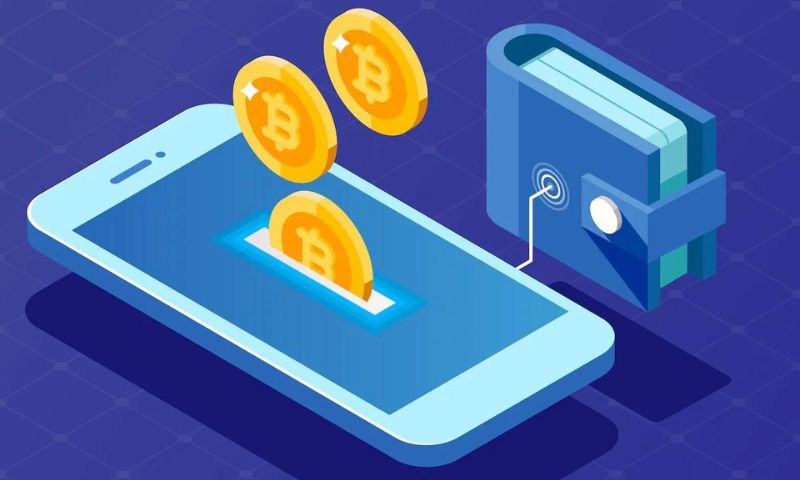
Best Practices for Managing and Protecting Your Wallet Password
Using Password Managers and Storage Best Practices
Creating a secure crypto wallet password is key to keeping your digital coins safe. Hackers are smart but you can stay a step ahead. First, let’s talk about password managers. They create and store your passwords for you. This means you don’t have to remember every single one. Plus, they’re locked down tight.
When you pick a password manager, go for one that’s well-known and has good reviews. It should have strong encryption to protect your info. This is like a secret code that’s super tough to crack. It locks up your passwords so only you can get to them.
Once you have a password manager, make it your best friend. Use it for every account, especially your crypto wallet. And here’s a pro tip: make sure your master password is like Fort Knox. That’s the one key to all your passwords, so it should be the strongest. Use a mix of letters, numbers, and symbols. And no easy-to-guess stuff like your birthdate!
Make your password long, too. But not so long you can’t remember it. Think of a phrase or a bunch of words that mean something to you. That’s your passphrase. It’s like a password, but longer and harder to guess.
Remember, your crypto is only as secure as your password. So never tell anyone what it is. Even if they say they can help you get rich quick!
Understanding the Necessity of Regular Password Updates and Recovery Strategies
Now let’s talk about keeping that password fresh. Hackers never rest, and you should not, either. Change your password often. Some say every three months. Others say twice a year. Just don’t let it get old.
Why change it so much? It’s like moving your hidden treasure before pirates can dig it up. New passwords mean hackers have to start from scratch every time.
But what if you forget your new password? That’s where a recovery strategy comes in. This is a way to get into your account if you get locked out. It might be a backup code or a recovery seed phrase. A seed phrase is a list of words that can unlock your wallet. Think of it as a backup key. Always keep it secret and safe – it’s as important as your main password!
Alright, let’s wrap up with your password to-do list:
- Get a password manager.
- Create a strong master password.
- Make long, memorable passphrases.
- Change your passwords regularly.
- Set up a recovery strategy and guard it like treasure.
Stick to these steps like glue and you’ll have a wallet as secure as a vault. Happy and safe crypto handling!
In this blog post, we dived deep into making and keeping strong passwords for your crypto wallet. We started with why complex passwords matter and how random letters, numbers, and symbols make them tough to crack. Remember, strong passwords have variety and aren’t easy to guess. Next, we talked about how to make a password that’s both strong and easy to remember, with tips on mixing different characters and avoiding common mistakes.
We also covered adding extra layers like two-step verification and fingerprint checks to keep your wallets even safer. Finally, I shared the smart ways to manage your passwords, like using password managers and changing them often to avoid risks.
To wrap it up, getting your password right is a big part of keeping your crypto safe. Use the tips we talked about, and you’ll be on the right track. Stay secure, and always stay one step ahead of the hackers. Protect your digital coins like you would your wallet, and remember to keep learning and updating your security game.
Q&A :
What are the essential components of a strong crypto wallet password?
To craft a robust password for your crypto wallet, aim to integrate a blend of characters including both uppercase and lowercase letters, numbers, and symbols. The more varied the characters, the more secure the password. It’s recommended that your password is at least 12 to 15 characters long. Avoid using easily guessable information like personal names, birthdays, or common words.
How often should I update my crypto wallet password?
Changing your crypto wallet password regularly can enhance security, but it isn’t necessary if you’re already using a strong and unique password. A good practice is to update your password if you suspect any security breach or when you have shared access with someone else and need to revoke it. Always keep your recovery phrase in a secure location as well.
Is it safe to use a password generator for my crypto wallet?
Using a reputable password generator can be a safe way to create a strong password for your crypto wallet, as it can generate a random and complex series of characters. However, be cautious of online services and ensure they are trustworthy and secure to avoid any breach in your privacy. After generation, store the password securely and do not share it with anyone.
Can I use a passphrase instead of a password for my crypto wallet?
Yes, a passphrase – a series of random words or a sentence that you can remember – can be used as a secure option for protecting your crypto wallet. Passphrases are often easier to remember and can provide a high level of security if they are long and complex enough. Make sure to include unpredicted word combinations and sprinkle in some numbers or symbols to enhance security.
What are the risks of a weak password on my crypto wallet?
A weak password can leave your crypto wallet vulnerable to brute force attacks, phishing, or other forms of cyber theft. With weak credentials, hackers can more easily access your funds and potentially steal your investments. To mitigate the risks, ensure your password is complex, unique, and known only to you, and consider using additional security measures like two-factor authentication.

